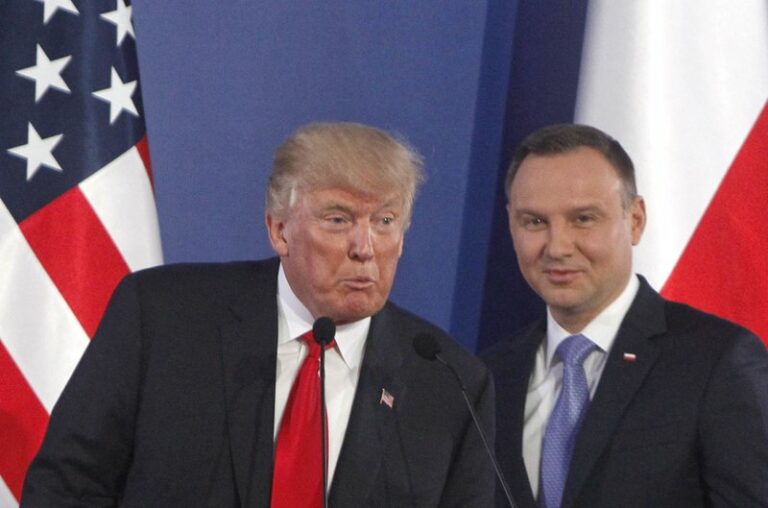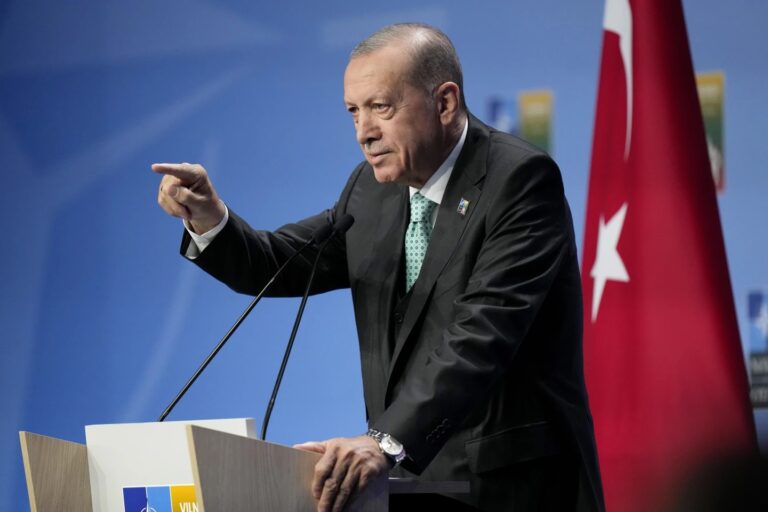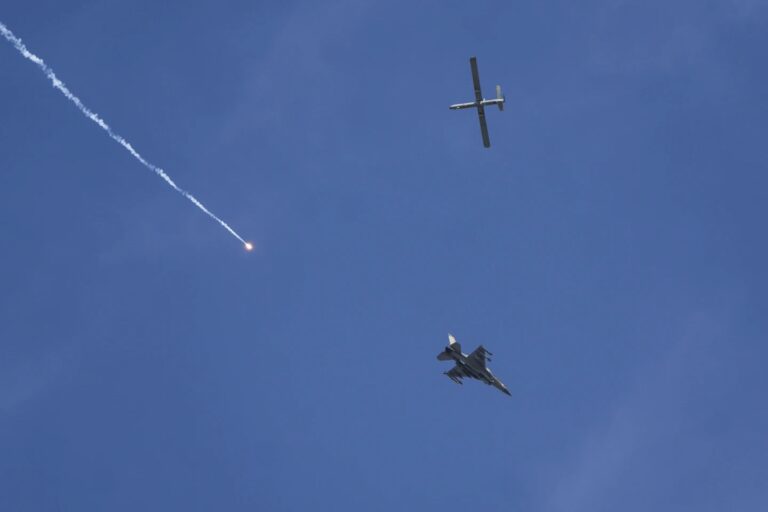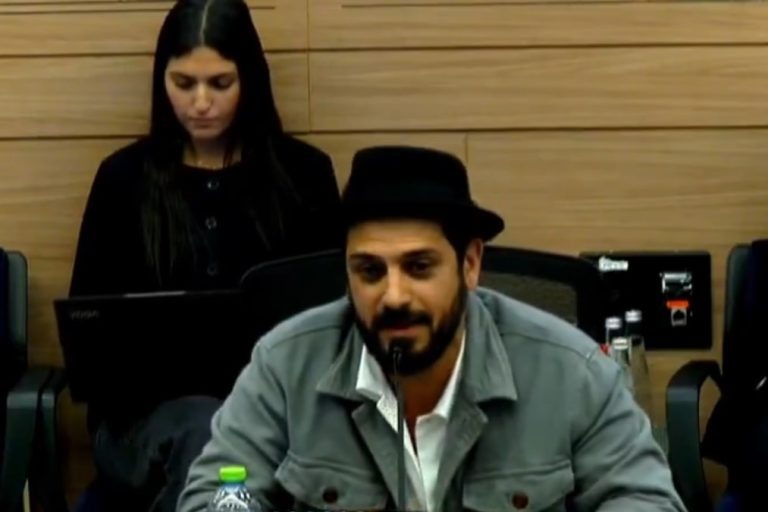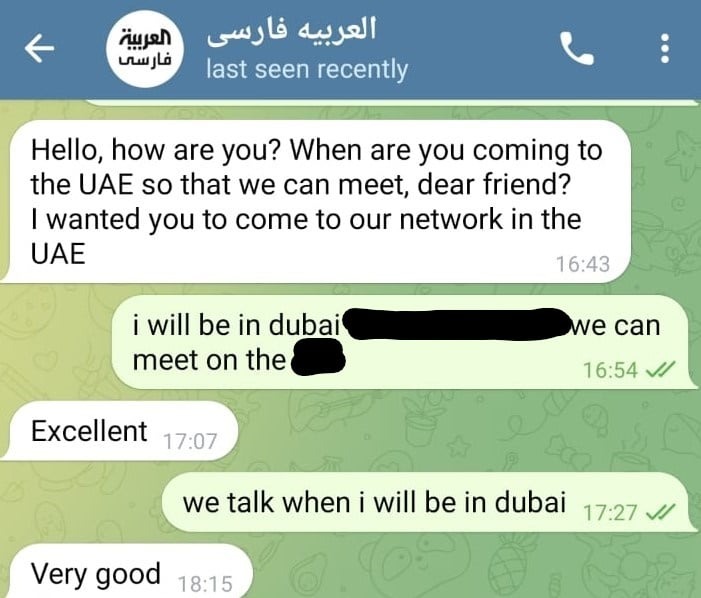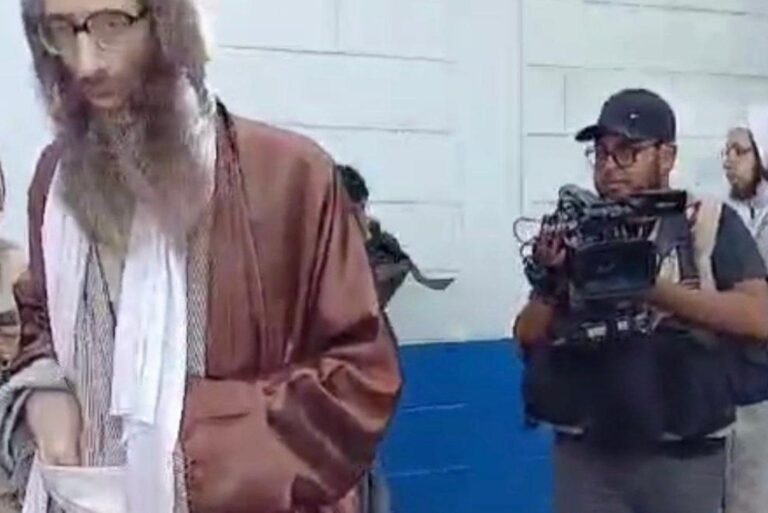President Donald Trump will be giving an image boost to Poland’s populist president, Andrzej Duda, by hosting him at the White House next week, just four days before Poland holds a presidential election in which Duda is fighting for a second term.
Since the June 24 visit was announced Wednesday, some in Poland have accused Trump of interfering in their election, noting that it is unheard-of for a U.S. leader to host a foreign politician so close to an election because it could be seen as an endorsement.
“President Trump is directly interfering in the election campaign in our country,” said Janusz Sibora, an expert on diplomacy. “This is unacceptable. Good diplomatic custom does not allow for such visits four days before an election.”
The White House says Trump will meet with Duda at the White House June 24 to discuss defense, trade, energy and telecommunications security. It will be the first visit of a foreign leader to Washington since the coronavirus pandemic began.
The meeting follows Trump’s announcement of plans to reduce the U.S. military presence in Germany. Under the current plan, at least some of the German-based troops are expected to be shifted to Poland, and it is widely expected that Trump will announce more details with Duda by his side.
There could be no better photo opportunity for Duda back home in Poland, a country that is among the most pro-American societies in Europe. A NATO member on the alliance’s eastern frontier, Poland relies heavily on the United States — and the thousands of U.S. troops already there — to feel secure in a region where Russia has historically dominated its neighbors.
Russian incursions in past years in Georgia and Ukraine have heightened fears of Moscow’s renewed imperial ambitions, and all of the main political parties in Poland support having even more U.S. troops.
It will not matter to many Poles that Trump is losing popularity at home for his handling of the coronavirus pandemic and anti-racism protests.
“This visit will give Duda a strong advantage during the last days of the campaign — days that are crucial,” said Igor Janke, the head of a conservative Warsaw-based think tank, the Freedom Institute. “Even if a liberal part of Polish elites don’t like Trump or laugh at him, he is still the president of the U.S., and is someone who can send troops here. And the security issue is an existential question in this country.”
The visit could also win Trump support with Polish-American voters in the U.S. presidential election in November. Numbering in the millions, they make up critical voting blocs in swing states like Pennsylvania, Michigan and Wisconsin.
Duda is polling ahead of 10 other presidential candidates in Poland’s June 28 election, with around 40% support. That is below the 50% required to win outright, however, and a runoff on July 12 is most likely going to be required between the two top vote winners.
Polls now suggest that the runoff will pit Duda against centrist Warsaw Mayor Rafal Trzaskowski in an extremely close race.
Some in Poland see Duda’s quickly arranged visit to Washington as a sign that he knows he is in trouble.
“It looks like a sign of desperation,” said Klementyna Suchanow, a prominent political activist and author of a book about Kremlin backing of fundamentalist movements. “The ruling authorities fear they are about to lose and are doing whatever they can. Trump is the last card they can play.”
Duda is backed by the conservative nationalist ruling party, Law and Justice, which has been criticized by human rights groups for its erosion of judicial independence and xenophobic rhetoric that has targeted migrants, Muslims and other minorities.
The election is important to the party because the president in Polish law has the power to veto legislation, and they will have trouble getting their laws passed if Duda loses.
In recent days, Duda has been using anti-LGBT rhetoric on the campaign trail in an apparent attempt to mobilize conservative voters. Last Saturday he accused the LGBT rights movement of promoting a viewpoint more harmful than communism, and said he agreed with another politician who said, “LGBT is not people, it’s an ideology.”
Meanwhile, his political allies have been pushing a similar anti-LGBT message and anti-Semitic conspiracies on the public media that they control. Poland’s Jewish community on Thursday said Jews were facing false accusations on state television and said it opposed “the use of anti-Semitism or the hatred of any other group for political purposes.”
Last Monday, taxpayer-funded public television TVP ran a news segment on its evening news program that depicted Duda as a defender of Polish interests, and Trzaskowski as someone who would sell out Polish interests to an “international lobby” seeking the restitution of property owned by Jews before World War II.
“With the help of authoritarian-style propaganda on public television, Duda’s campaign has focused relentlessly on anti-LGBT fear-mongering,” said Stanley Bill, a professor of Polish culture and politics at the University of Cambridge and a founder and editor of Notes from Poland, a news website.
“More recently, this propaganda has also included dog-whistle associations of the opposition with ‘Jewish’ interests that supposedly threaten ‘Polish families.’ Trump’s highly unusual move so close to the election seems to represent an endorsement of this campaign,” Bill said.
(AP)

